AUßENPOLITISCHES
(Jean-Claude Juncker offenbar betrunken)
Jean-Claude Juncker drunk and bitch slaps leaders
Niedrigzinsen machen's möglich
Irland leiht sich Millionen für 100 Jahre
Während Sparer über Minizinsen schimpfen, freuen sich europäische Regierungen. Denn Investoren werfen ihnen das Geld regelrecht hinterher. Jüngstes Beispiel: Irland.
Belgien
Terroranschläge: Tote und Verletzte bei Explosionen in Brüssel
Kommentar zum Terror von Brüssel
Was mit was etwas zu tun hat
von Michael Paulwitz
Nach Brüssel: Adnote zum dümmsten Satz unter vielen dummen
Islamistenhochburg Molenbeek
Brüssel verbietet islamkritische Demonstration
Französische Polizei vereitelt Anschlag
Verona
Italienische Stadt sagt Döner-Buden den Kampf an
Syrien: Ein Krieg aus energiepolitischen Gründen
Robert F. Kennedy Jr: Der Regime-Change war lange geplant und ist typisch für US-Interessen im Nahen Osten
Es ist offiziell: Kanada besitzt kein Gold mehr!
Historisch: EZB senkt Leitzins erstmals auf Null Prozent
Kommentar zur EZB
Flasche leer
von Markus Brandstetter
Bye-bye Bargeld
Der totale bargeldlose Zahlungsverkehr ist technisch sehr bald möglich. Schweden ist auf dem besten Weg - schafft auch Deutschland bald Scheine und Münzen ab?
Ohne Bargeld in die Zukunft?
Welche Möglichkeiten bietet uns das virtuelle Geld?
Transparency International: Korruption weltweit rückläufig
In zwei Dritteln der Staaten ist Korruption ein unverändert großes Problem. Doch es gibt Fortschritte im Kampf dagegen, unter anderem auch in Deutschland.
Deutschland setzt Geheimdienst gegen russische Propaganda ein
Es ist ein unauffälliger Krieg gegen einen mächtigen Gegner: Russland. Nach der EU macht nun auch Deutschland mit. Gekämpft wird mit Information und Desinformation.
(Nun auch noch visafreie Einreise für Türken)
"Die Tage illegaler Migration nach Europa sind vorbei"
Die Türkei soll alle Flüchtlinge zurücknehmen, dafür von der EU mehr Geld und Visa-Erleichterungen erhalten. Details der Gipfel-Einigung sollen nun geklärt und am 17. März beschlossen werden.
Steckt die Kanzlerin hinter dem Türkei-Deal?
Kritiker vermuten: Merkel steckt hinter dem türkischen Überraschungsdeal von Brüssel. Es würde passen. Denn auf einmal ist ihr Plan zur Lösung der Flüchtlingskrise erneut im Zentrum der Debatte.
Türkei-Gipfel
Absurdes Theater
von Michael Paulwitz
Drohende Visa-Freiheit
Eine Super-Migrationswaffe für die Türkei
von Michael Paulwitz
Welttag gegen Rassismus
Türkischer Abgeordneter warnt vor „rechtsextremer AfD“
"Erdogan mächtig wie Putin"
Türken bejubeln "Triumph" über die EU
EU
Nun geben andere den Ton an
von Henning Hoffgaard
Gysi zu Verhandlungen Europas mit der Türkei
(Der Türkei-Deal)
Merkels „grand strategy“
Türkische Polizei attackiert Frauen mit Gummigeschossen
Anlässlich des Weltfrauentages demonstrierten in Istanbul und Ankara Frauen für ihre Rechte – und erfuhren, was die Regierung davon hält. Die Polizei trieb die Demonstrantinnen mit Gewalt auseinander.
Staatliche Übernahme: Türkei bringt Oppositionsblatt "Zaman" auf Regierungskurs
Mindestens 37 Tote
Türkei macht Kurden für Terroranschlag verantwortlich
Rußland zieht Großteil seiner Truppen aus Syrien ab
(Asymetrische Kriegführung ohne Prozess und Uno-Mandat)
Islamisten getötet
US-Militär tötet 150 Terrorkämpfer bei Drohnenangriff in Somalia
Pakistan
Viele Kinder unter Opfern
Dutzende Tote bei Selbstmordanschlag in Park
Terrorismus
Mann in Ägypten wegen Aussagen über untreue Ehefrauen verurteilt
3 Jahre Haft
Libyen
Das nächste Syrien
Per Überweisung
Hacker rauben Zentralbank von Bangladesch aus
 INNENPOLITISCHES / GESELLSCHAFT / VERGANGENHEITSPOLITIK
INNENPOLITISCHES / GESELLSCHAFT / VERGANGENHEITSPOLITIK
Krankenkasse wird teurer
Zusatzbeitrag steigt wohl auf 1,8 Prozent
Anne Will: Merkel gegen den Kleingeist
Merkel in der Flüchtlingsfrage
Merkel gesteht bei Anne Will planlos zu regieren
Angela Merkel hat bei ihrem Auftritt eine Formulierung variiert, mit der sie schon einmal aufhorchen ließ: „Das ist genau das, wovor ich Angst habe, wenn der eine seine Grenze definiert, muss der andere leiden“, hat sie diesmal gesagt. „Das ist nicht mein Europa.“
Merkels Auftritt im Ersten
Die Volkspredigerin
Von Alexander Kissler
Angela Merkel
Die Trümmerfrau
von Hans-Hermann Gockel
Historiker rechnet mit Merkel ab: "Deutschland so isoliert wie seit dem Zweiten Weltkrieg nicht mehr"
Ex-Bundesinnenminister
Friedrich fordert Merkel-Anhänger zum Parteiwechsel auf
Merkel lässt Seehofer und Gabriel abtropfen: Zweite Liga
München - Die teils erdrutschartigen Ansehensverluste Seehofers und Gabriels zeigen: Lautes Gebell und ständiges Schielen nach Hinterausgängen aus der gemeinsam verantworteten Asylpolitik helfen nicht weiter. Ein Kommentar.
Merkel warnt vor Wahl der AfD: Keine Lösungen anzubieten
Kanzlerin nennt Ungarns Haltung in Flüchtlingskrise "enttäuschend"
Die unerträgliche Heuchelei der Merkel-Regierung
Die Export-Lobby hinter supermoralischer Maskierung
(Neuauflage der "Nationalen Front"?)
Wegen AfD-Erfolgen
Gysi wirbt für Bündnis mit der Union
(Immerhin macht der "Welt"-Kommentator noch einen Bindestrich zwischen die Worte "national" und "sozialistisch"…)
Wieviel Sozialismus steckt eigentlich in der AfD?
Die Alternative für Deutschland ringt um ein Programm. Noch ist nicht klar, wie es aussehen wird. Eines steht fest: Ihr Verständnis von Volk und Opposition hat wenig mit dem Grundgesetz zu tun.
Grünen-Abgeordneter legt nach Drogenfund alle Ämter nieder
Bei einer Kontrolle fand die Polizei laut Meldung von "Bild" Drogen beim Grünen-Abgeordneten Volker Beck. Beck äußerte sich zu den Vorwürfen nicht, stellte aber alle Ämter zur Verfügung.
Der tiefe Fall eines selbstverliebten Moralapostels
von Michael Paulwitz
Der Fall Beck und die andere, noch viel dramatischere Dimension!
Das Moral-Gehabe der Volkszertreter Volker Beck und Angela Merkel
Die Teufels-Droge Crystal Meth wirkt extrem zerstörerisch
Volker Beck soll mit Crystal Meth erwischt worden sein. Die Droge ist extrem gefährlich - und wird im Berliner Raum immer beliebter. Ein Report.
(Beck für Presse-Maulkorb)
In eigener Sache
Post von Beck
von Felix Krautkrämer
Nach Silvester-Aussage
Claudia Roth will juristisch gegen AfD-Mann vorgehen, doch blitzt bei Gericht ab
AfD will Landtagswahlen beobachten - und löst Empörung aus
CDU in Schleswig-Holstein
Politiker spotten über Schweinefleisch-Vorschlag
Mehrheit gegen Schweinefleisch-Verbote
Trotz viel Spotts hält die Nord-CDU an ihrem Vorstoß gegen Schweinefleisch-Verbote fest. Thema im Landtag
Christentum
Gerichtspräsident lässt Kruzifixe abhängen
Bremer Bürgerschaftspräsident tritt bei Islamisten auf
(Mini-Rosenkrieg wird von den Medien zur Schlammschlacht aufgebauscht)
Er trat in die CDU ein
Das hält Frauke Petrys Ehemann von der Politik seiner Frau
Kommunalwahl Hessen
Gewinne für AfD – Klatsche für SPD, CDU und Grüne
Landtagswahlen: Debakel für die CDU / AfD triumphiert
Landtagswahlen mit AfD-Erfolg
Sieg für die Demokratie
von Dieter Stein
Landtagswahlen
So reagieren die Parteien auf den AfD-Erfolg
Imad Karim im Gespräch mit Frau Dr. Frauke Petry
Nach dem Triumph der AfD (1) – historische Stunde, historische Verantwortung
Nach dem Triumph der AfD (2): Das sowieso gefrierende Wasser
(Schwarz-grüne Koalition in Baden-Württemberg)
Schwarzes Lehrstück in politischer Selbstdemontage
Landespolizei bewacht die Kollegen
Bundespolizei fühlt sich in Potsdam nicht sicher
Die Landespolizei muss die Bundespolizei bewachen, weil die sich in ihrem Potsdamer Präsidium derzeit nicht mehr so sicher fühlt. Grund: Nebenan wohnen hunderte Flüchtlinge und außerdem ist die Stimmung in der Stadt aufgeladen – wegen der Pogida-Demos.
Innere Sicherheit
Kriminalbeamte: Deutschland ist „Paradies für Einbrecher“
(Dazu ein hilfloser Kommentar, der nicht die Wurzeln benennen will, aber den Bürger zur Selbsthilfe auffordert)
Deutlich mehr Wohnungseinbrüche
Kommentar: Polizei allein überfordert
Erledigten nur unsere Arbeit
Zwölftklässler präsentieren ihr Projekt „Auschwitz“
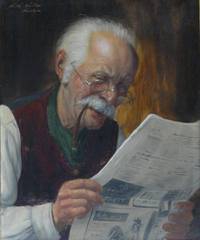 LINKE / KAMPF GEGEN RECHTS / ANTIFASCHISMUS / RECHTE
LINKE / KAMPF GEGEN RECHTS / ANTIFASCHISMUS / RECHTE
Es gibt keine Mauern, außer man baut sie.
Rechtsextremismus: Regierung verdoppelt Ausgaben gegen rechts
CDU und SPD planen von 2017 an mehr Geld für die Prävention rechter Gewalt ein. Initiativen und Projekte in den Kommunen sollen 50 Millionen Euro zusätzlich erhalten.
(Ein weiteres Ablenkungsmanöver mit Hilfe eines bizarren Kleinvereins?)
De Maizière verbietet "Weisse Wölfe Terrorcrew"
Der Verein "Weisse Wölfe Terrorcrew" betreibt de Maizière zufolge "offen und aggressiv Hetze" – gegen Migranten und Polizisten. Bislang war die Mitgliedschaft nicht verboten – doch das ändert sich.
(Tolle Schmonzette)
Büdingen in Hessen: Syrische Flüchtlinge retten verunglückten NPD-Politiker
(Demo des linken Minderheiten-Kultes)
Tausende beteiligen sich am Karneval der Geflüchteten in Tempelhof und Kreuzberg
Kommunalwahl
Ex-RAF-Terrorist kandidiert für hessische SPD
Sozialreferent im Uni-AStA als Plakatdieb erwischt
Matti-Leon Klieme gehört Juso-Hochschulgruppe an
Kommentar zur Tortenattacke
Bedenkliche Schadenfreude
von Dieter Stein
Rechter Demozug durch Regierungsviertel in Berlin
„Da geht’s rund !!!! froilein“: Nach diesen vier Wörtern auf Facebook stand die Polizei vor der Tür
„Compact“-Magazin
Polizei versetzt Beamte wegen Zeitschrift
Sachsen
Freital erteilt linkem Verein eine Abfuhr
„Netzwerk gegen rechts“
Karlsruhe verteidigt Kooperation mit Linksextremisten
(Die Opfer werden bestraft, die Täter belohnt)
Nach Farbanschlag: Hotel setzt AfD vor die Tür
Gesinnungs-TÜV
BVB-Fanclub will AfD-Wähler rauswerfen
(Antifa-Aufruf als Partner der Wochenzeitung "Zeit")
Gegen Terror und AfD reichen Facebook-Posts nicht – wir müssen uns engagieren!
Nach den Landtagswahlen
Türkische Gemeinde fordert Ausgrenzung der AfD
AfD löst saarländischen Landesverband auf
Der Landesverband Saarland hatte Kontakte in die rechtsextreme Szene. Die Bundes-AfD beschloss die Auflösung. Der Landesverband will für seinen Erhalt kämpfen.
Offenbar Kontakte zu Rechtsradikalen
AfD-Spitze löst Saar-Landesverband auf
Bündnis mit Linksextremisten
Seit an Seit gegen die AfD
Baden-Württemberg
AfD-Politiker schockiert über linksextreme Attacke
Linksextremisten beschmierten Fassade
Erneute Attacke auf Büro der AfD-Abgeordneten von Storch
Anti-AfD
Linksextreme bekennen sich zu Anschlag auf Hotel
("Shitstorm" gegen AfD-Wahlparty in Frankfurt)
Gesinnungsdenunzianten gegen Apfelweinlokal
Totalitäre Nazi-Methoden der Einschüchterung
(Gegen "Gentrifizierung")
Frankfurts linke Szene kündigt offen Straftaten an
Parteiübergreifende Feigheit vor Gewalt rächt sich
(Täter unbekannt)
Frankfurt / Offenbach
Unbekannte lockern Radmuttern
Attacken auf Polizistenautos in der Region
(Alle Jahre wieder. Und der Aufschrei in der Politik bleibt aus…)
Straßenfest Schanzenfest eskaliert - Polizei bis in die Nacht im Einsatz
EINWANDERUNG / MULTIKULTURELLE GESELLSCHAFT
Flüchtlingskrise in Deutschland
BAMF-Chef Weise: "Wir brauchen sogar noch zusätzliche Zuwanderung"
Die Front rückt näher
von Michael Paulwitz
Die „taz“ und die Flüchtlinge
Die Macht der Bilder
von Felix Krautkrämer
(Als "Satire" getarnter taz-Rassismus)
Die Wahrheit
Weg mit dem Kretin!
Niemand unter den Völkern der Welt braucht dieses Land. Ein notwendiges Manifest zur endgültigen Abschaffung Deutschlands.
Die Süddeutsche Zeitung über den Großen Austausch
Bevölkerungspolitik
Forscher: Deutsche werden in Großstädten zur Minderheit
Türkei-Deal: Deutschland könnte Großteil der Flüchtlinge aufnehmen
Österreich
Kurz: "Es gibt keinen Fluchtgrund aus Griechenland"
Einwanderung ins Sozialsystem
Bruder von Kosovos Premier suchte Asyl in Deutschland
Migration: Geheimdienst warnt
Laut einem Bericht des Heeresnachrichtenamtes könnte die Dimension von 2015 „noch durchaus übertroffen werden“. Analysten des Dienstes sehen Aufrüsten der Schleppersyndikate in Ägypten.
Verfassungsbeschwerde abgewiesen – Gespräch mit Schachtschneider zur Lage
Das Bundesverfassungsgericht hat die von der Bürgerinitiative „Ein Prozent“ geführte Verfassungsbeschwerde gegen die Einwanderungspolitik des Kabinetts Merkel III nicht zur Entscheidung angenommen, sondern begründungslos zurückgewiesen. Karl Albrecht Schachtschneider, unser Verfahrensbevollmächtigter, wertet die Beschwerde nun als „historisches Dokument“
TV-Kritik: Anne Will Nur einer klatscht für Heiko Maas
Anne Will entlarvt bei der Flüchtlingsdebatte eine peinliche Aktion des Pressesprechers von Heiko Maas. Der Justizminister wirkt neben dem österreichischen Außenminister wie ein Schuljunge.
(Popsängerin Sarah Connors Beitrag zur Einwanderungskrise…)
Sarah Connor über ihre Gastfamilie: "Natürlich ist das auch zwischendurch mal anstrengend."
(Sie nehmen nur optisch vorweg, wie ihre Mannschaft in einigen Jahren auch ohne Schminke aussehen wird…)
Deinster SV: Mitspieler stehen gegen Rassismus ein
Es ist zwar ein trauriger Anlass, aber dennoch eine großartige Geste von mannschaftlicher Geschlossenheit und vor allem ein klares Zeichen gegen Rassismus: Weil einer ihrer Mitspieler aufgrund seiner Hautfarbe beleidigt und geschlagen wurde, haben sich seine Mannschaftskameraden vom Deinster SV etwas ganz Besonderes einfallen lassen.
Interview mit einer Lehrerin über die neue Situation in der Flüchtlingskrise
Wenn Integration schon in der Grundschule scheitert
Die aktuelle Warnung des Friedenspreisträgers
Der Algerier Boualem Sansal zu Islam und Flüchtlingen
Europa plant Turbo-Asyl für syrische Flüchtlinge
Schweden
Das Ende der Willkommenskultur
Schweden: Einwanderung drückt Bildungsniveau
Wenn man die Dritte Welt importiert
Nach Schweden droht auch Deutschland ein Wohlstandsverlust wegen Masseneinwanderung
Migrants Attack 60 Minutes Crew In Sweden.
Libanesin erzählt von der Selbstzerstörung einer "multikulturellen" Gesellschaft…
5 Millionen Türken sitzen auf gepackten Koffern
Western Union und die geplante Logistik der Migrantenströme
Schätzung
Ifo-Institut: „Grenzkontrollen billiger als Massenzuwanderung“
("Grüne" interessiert der Umweltschutz nicht mehr…
Zitat: "Die Hummelsbütteler Feldmark ist laut Koalitionsvertrag eine von Bebauung freizuhaltende Landschaftsachse. Sie ist insbesondere auch eine Kaltluftschneise, die frische, kühle und unbelastete Luft aus dem Umland in die Siedlungsräume leitet und so für gutes Klima sorgt. Deshalb auch hatten Bund für Umwelt und Naturschutz Deutschland (BUND) und Naturschutzbund Deutschland (Nabu) die Baupläne abgelehnt und an die Versprechen der Politik erinnert. Die rot-grüne Koalition beeindruckte das nicht. Vonseiten der Grünen hieß es, die hohe Zahl der Flüchtlinge habe die Geschäftsgrundlage geändert und eine neue Betrachtung der Lage nötig gemacht.")
Hamburg-Hummelsbüttel
Heftiger Streit um Bau von Flüchtlingsunterkünften
Zu Entwicklungshilfe umdeklariert
Bund rechnet Flüchtlingsausgaben neu ab
Ein Rechentrick soll helfen, die immensen Ausgaben für Flüchtlinge in Deutschland abzufedern. Sie sollen künftig fiskalisch als Entwicklungshilfe gelten. Damit wird nebenbei ein kleines moralisches Defizit ausgeglichen. Schweden hat es bereits vorgemacht.
(Zur Fachkräfte-Lüge…)
Hurra! Sie kurbeln wieder!
Gastredner klagt über Schulden
IHK-Jahresempfang: Integration als Mammut-Aufgabe
(Na so eine Überraschung…)
Motivation hoch, Deutsch schlecht, Berufsabschluss selten
Jobchancen für Flüchtlinge: Schnelle Erfolge nicht zu erwarten
(…Aber die deutschen Macher haben natürlich alles im Griff, denn "Sie (die "Flüchtlinge") sind das, was wir aus ihnen machen."…)
Ernüchternde Bilanz
Kommentar: Flüchtlinge nicht fit für den Arbeitsmarkt
Angeblicher Fachkräftemangel
SPD-Politiker: Asylbewerber sollen in Schwimmbädern arbeiten
Unterkünfte sollen Notquartiere in Turnhallen überflüssig machen
Holzhäuser Herberge für Flüchtlinge
Kaum Abschiebungen in Niedersachsen
Räumung des „Dschungels“
Calais: Illegale Einwanderer attackieren Polizei
An der Grenze zu Mazedonien
„Merkel, wo bist du? Merkel, hilf uns!“: Flüchtlinge rufen nach Kanzlerin
Sturm auf Grenze
Das schmutzige Spiel von Idomeni
von Felix Krautkrämer
Organisierte „Flucht“ aus Idomeni
Die Leichen der anderen
von Thorsten Hinz
Nach Türkei-EU-Gipfel
Grüne: Idomeni-Asylsuchende sollen nach Deutschland
Österreich
Panzer im Einsatz an der Südgrenze
Bundesregierung will Asyl-Restriktionen notfalls auch mit militärischer Gewalt durchsetzen.
„No Border“
Flüchtlingsorganisationen verteilen Bolzenschneider
(Die schöne bunte "Multikulti"-Welt)
Supermärkte in Deutschland
Einkaufen wie in Damaskus - Neue Läden ziehen Flüchtlinge an
Halal-Fleisch, Knoblauchwurst oder Sesampaste - in deutschen Supermärkten finden Flüchtlinge oft nicht, was sie aus der Heimat kennen. Läden mit arabischen Lebensmitteln schließen diese Lücke - gerade in ländlichen Regionen.
Nürnberger "Asylothek" wird bundesweit etabliert
Die Nürnberger "Asylothek" soll bundesweit Schule machen: Initiator Günter Reichert will bis Ende des Jahres 50 dieser Kultureinrichtungen in ganz Deutschland etablieren. Im Juli wird der Architekt zudem zum Deutschen-Engagement-Botschafter ernannt.
Hessische Hochschulen erhalten zwei Millionen Euro für Flüchtlingshilfe
Neymar statt Karl
Jedes Jahr gibt es 1000 neue Vornamen in Deutschland
(Muslimin lüftet Schleier… Sensation…)
Prozess in München
"Ich möchte bei Ihrer Aussage Ihr Gesicht sehen"
Amira B. behauptet, von einem Mann beleidigt worden zu sein. Das Problem: Die Muslimin ist verschleiert – und will den Schleier auch vor Gericht nicht abnehmen. Doch da macht die Richterin nicht mit.
München
Pfarrer will Moslems Kirche als Moschee überlassen
Bundeszentrale für gesundheitliche Aufklärung
Was Flüchtlinge über guten Sex wissen müssen
Flüchtlingskrise: Polizei rechnet mit steigender Kriminalität
Asylantenkriminalität
AfD empört über Berliner Polizeistatistik
Nachts nicht allein unterwegs sein
Schwedische Stadt kapituliert vor Gewalt gegen Frauen
Silvesternacht in Finnland
Auch in Finnland und Schweden gab es Übergriffe auf Frauen
Hannover
Messerattacke auf Polizisten soll IS-Hintergrund haben
Bautzen: Asylbewerber erfindet Überfall
Norderstedt
Asylbewerber sollen Mädchen in Spaßbad vergewaltigt haben
Köln
Neue Sex-Übergriffe in Schwimmbädern
Oberhausen
Asylbewerber belästigen Minderjährige in Freizeitbad
Dresden
Wieder zwei Festnahmen nach Missbrauch im Schwimmbad
Altötting
Spanner mit Spiegel in Schwimmbad-Umkleide
Vorfall in Herrenberg
Männer belästigen behinderte Mädchen im Schwimmbad
Weiden
Syrer sollen Mädchen in Therme begrapscht haben
Zwei Täter noch auf der Flucht
Hamburg: Polizei sucht Gruppenvergewaltiger
Festnahmen nach brutaler Vergewaltigung in Nürnberg
Gewaltausbruch in Flüchtlingsunterkunft
Sie schlugen mit Latten auf den Heimleiter ein
Elf Verletzte bei Massenschlägerei
Prügelei unter Flüchtlingen wegen Foul beim Fußballspiel
Babenhausen - In Babenhausen prügeln Flüchtlinge aufeinander ein. Auslöser des Streits soll ein Foul bei einem internen Fußballspiel gewesen sein.
Neu-Isenburg
Polizei rückt zweimal in einer Nacht aus
Zwölf Festnahmen nach Schlägereien in Flüchtlingsunterkunft
Heppenheim
Nach Auseinandersetzung in Asylantenheim Ermittler suchen nach Ursache für Schlägerei
Aschaffenburg: Kurden greifen Demonstration nationalistischer Türken an
Auseinandersetzungen zwischen Kurden und Türken haben die Aschaffenburger Polizei über Stunden in Atem gehalten. Bayerns Innenminister spricht von einer "Zumutung".
München
Glimpfliche Urteile
U-Bahn-Pöbler zeigen Reue - und ziehen lachend davon
Magdeburg
Afghane gesteht Sex-Attacken auf Frauen
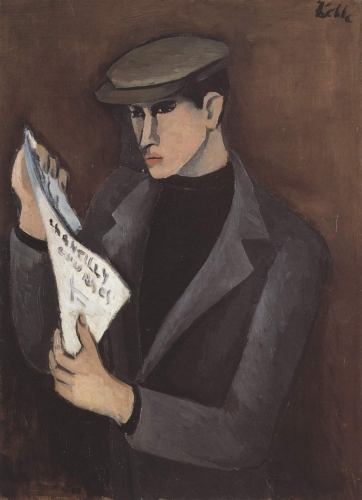
KULTUR / UMWELT / ZEITGEIST / SONSTIGES
Chemnitz schafft sich ab
Sachsens drittgrößte Stadt ruiniert ihr Bauerbe: Ganze Gründerzeitstraßen wurden platt gemacht. Aber auch Bauten aus NS-Zeit und DDR sollen weg. Dabei ist Politik mit der Abrissbirne Denkmalfrevel.
Die Krise der Stadt Köln verspielt sein Potential
Eine historische Stadt wird zur Beute der Events, der Wildpinkler und Vergnügungssucht. Dass ausgerechnet Köln zum Paradefall für den Verlust an Urbanität geworden ist, entbehrt nicht tragischer Ironie. Ein Kommentar.
Ruine des afghanischen Königspalasts in Kabul wird restauriert
Immobilienmarkt
Im Schwungrad
von Markus Brandstetter
Bildungspolitik
Österreichs Grüne gegen Deutschpflicht auf Schulhöfen
Frontbericht vom Geschlechterkampf – Pirinçcis »Verschwulung«
Frühsexualisierung
JF-TV: Porno, Peitsche, Pädophilie - Perversion im Klassenzimmer
Bayerischer Rundfunk
Broder: Claudia Roth ließ mich von Talkrunde ausladen
Wahlergebnisse entlarven Forsa-Chef Güllner als falschen Propheten
von Ronald Berthold
Frau Petrys Schieß-Befehl + die Heuchelei der Medien
Bundesverwaltungsgericht
Klage gegen Rundfunkgebühr abgeschmettert
Neues Radio-Bremen-Gesetz
Sendeauftrag
Das rot-grüne Regierungsbündnis in Bremen macht vor, wie man die „Staatsferne“ des öffentlich-rechtlichen Rundfunks auf harte Weise zerstört: Ein eilends durchgepeitschtes Gesetz verordnet Radio Bremen, was es senden soll.
Öffentlich-rechtlicher Rundfunk
Bremen: AfD kritisiert neues Rundfunkratsgesetz
(Radio-Bremen-Gesetz)
Meinung
Entscheidung mit Geschmäckle
von Bastian Behrens
„Pranger der Schande“: Juristische Schlappe für „Bild“-Zeitung
Der "gläserne" Autofahrer
Telematik-Tarife: Versicherungen machen Ernst
Wachstumskritik (VII): Das Diktat der Unruhe
Armin Nassehi und die „ethnische Homogenität“
(Nichts Genaues weiß man nicht. Aber die "Welt" versucht schon mal zeitgeistkonform den Bamberger Reiter zum "Orientalen" umzudeuten.)
Der Bamberger Reiter ist ein Orientale
König? Weltenretter? Der Bamberger Reiter ist ein Mysterium. Keiner weiß, wen die Figur aus dem Mittelalter darstellt. Jetzt will eine Forscherin das Rätsel gelöst haben. Ein Indizienprozess.
Sloterdijks Metaphern- und Münklers Schleiertanz
von Thorsten Hinz
(Dread)
Vereinigte Staaten
Falsche Frisur: Schwarze attackiert weißen Studenten
(Computer siegt über Mensch)
Computersieg im Go-Duell
"Er ist eben nur ein Mensch"
Bahnschienen gestohlen – 25 Tonnen Gewicht
Täter benutzten Hebetechnik
"Mustang"
Filmbesprechung
Ein packender Einblick in die Welt der Zwangsehen
von Claus Wolfschlag



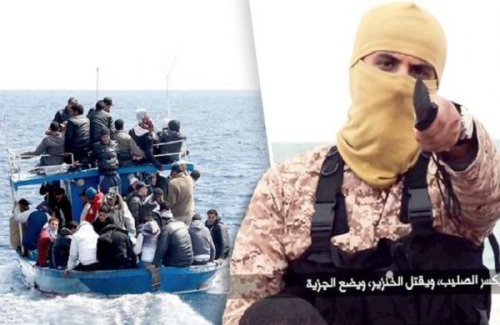

 del.icio.us
del.icio.us
 Digg
Digg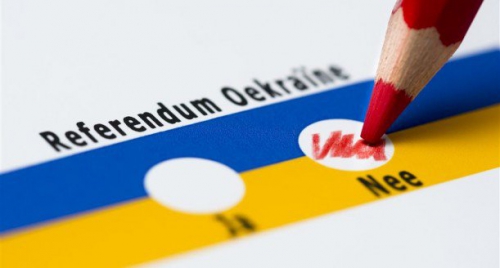
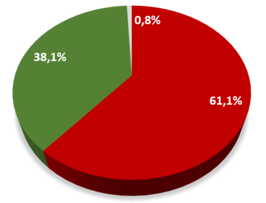

 INNENPOLITISCHES / GESELLSCHAFT / VERGANGENHEITSPOLITIK
INNENPOLITISCHES / GESELLSCHAFT / VERGANGENHEITSPOLITIK LINKE / KAMPF GEGEN RECHTS / ANTIFASCHISMUS / RECHTE
LINKE / KAMPF GEGEN RECHTS / ANTIFASCHISMUS / RECHTE
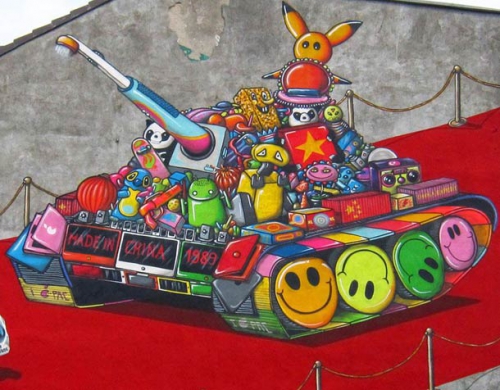
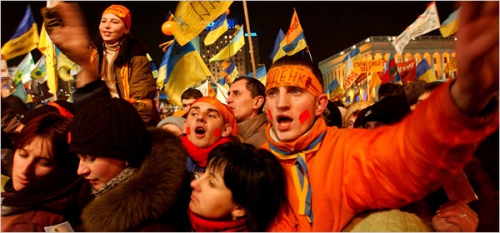
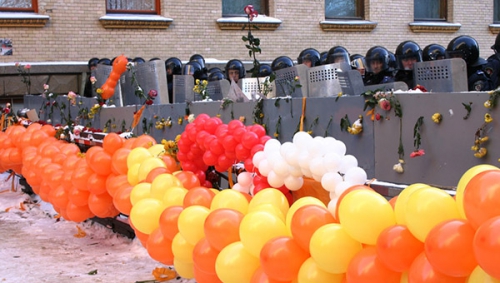


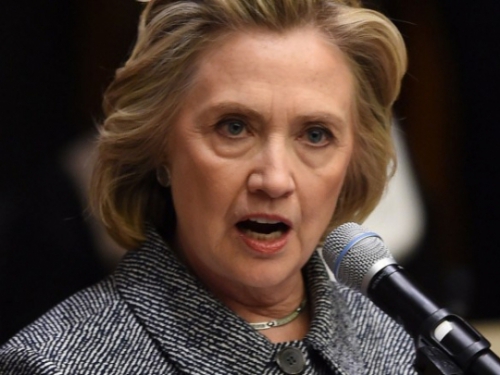
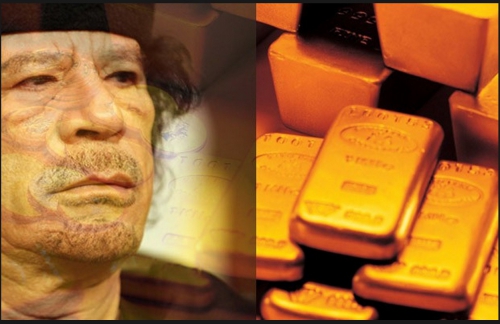
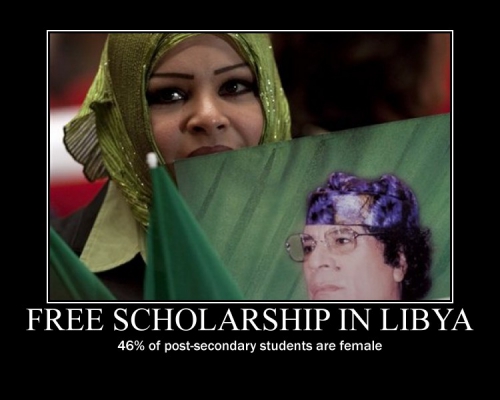

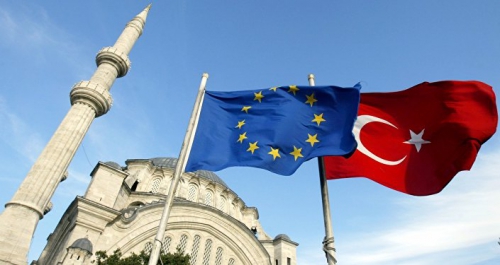
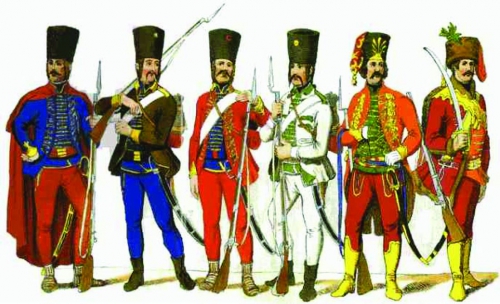
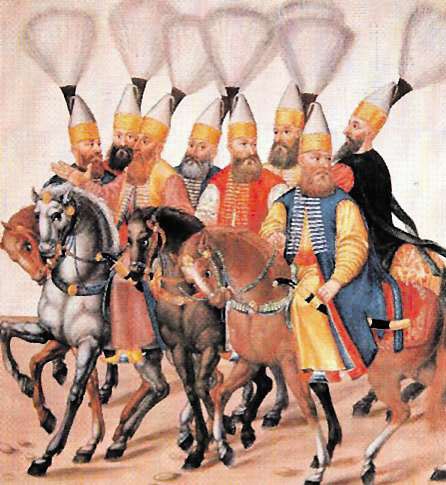
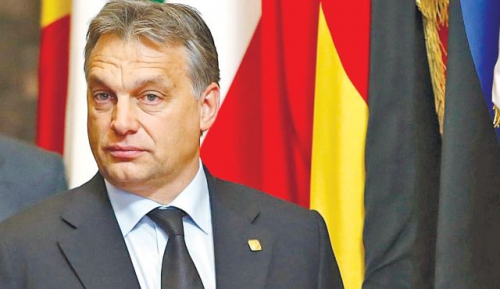
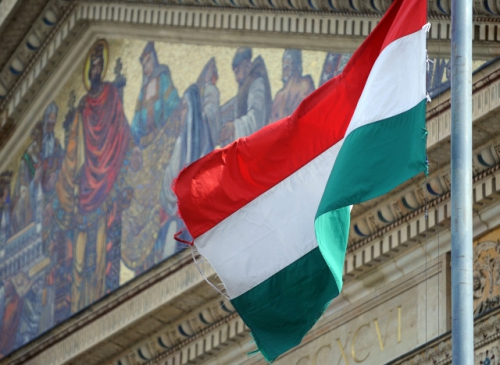
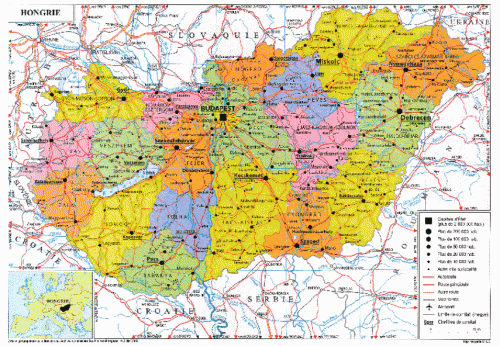
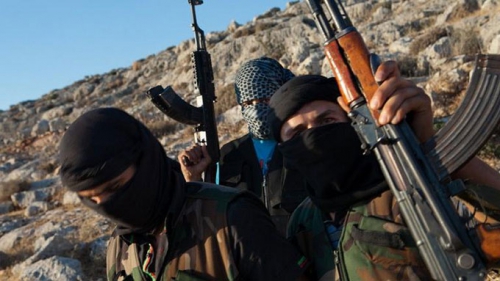
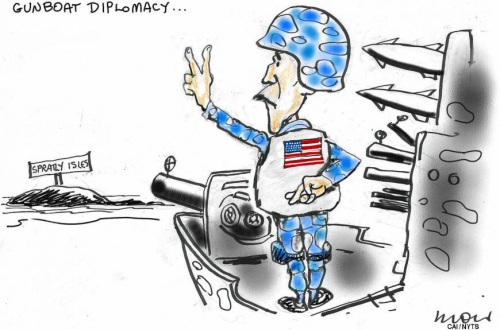
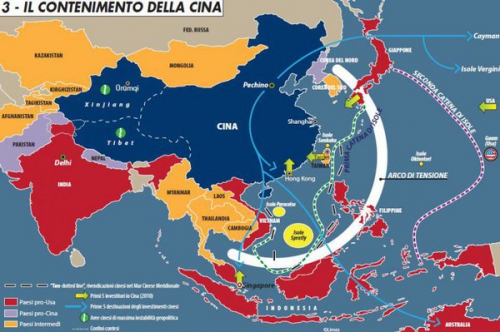

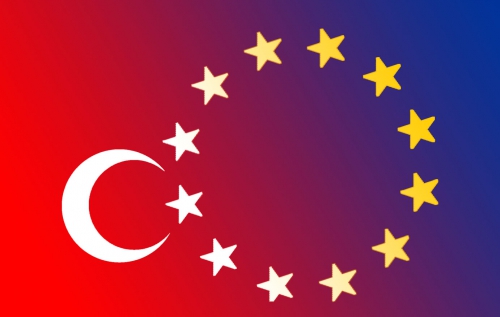
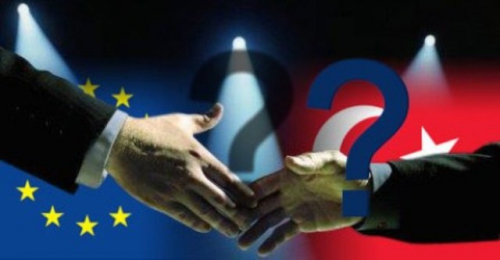
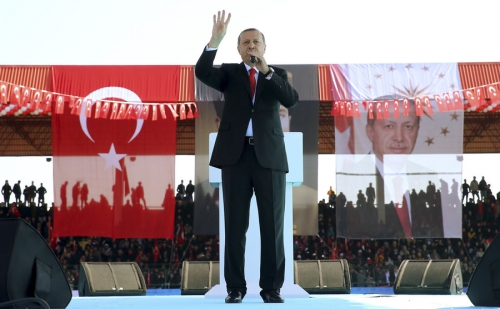
 Il faut croire que nous arrivons à un carrefour dans notre Histoire suite à un emballement frénétique typique de notre société post-moderne. 2015 marque en effet le début de ce qui semble être une nouvelle ère avec le retour en puissance du terrorisme islamique sur le sol européen et ce pour le plus grand malheur de l’irénisme ambiant et de l’hédonisme-matérialiste de l’homo occidentalis. Hélas ! La réponse à la menace terroriste est tout aussi funeste que la menace elle-même : outre le déni de réalité, l’état d’urgence et la société sécuritaire. Nous sommes littéralement dans la gueule du loup.
Il faut croire que nous arrivons à un carrefour dans notre Histoire suite à un emballement frénétique typique de notre société post-moderne. 2015 marque en effet le début de ce qui semble être une nouvelle ère avec le retour en puissance du terrorisme islamique sur le sol européen et ce pour le plus grand malheur de l’irénisme ambiant et de l’hédonisme-matérialiste de l’homo occidentalis. Hélas ! La réponse à la menace terroriste est tout aussi funeste que la menace elle-même : outre le déni de réalité, l’état d’urgence et la société sécuritaire. Nous sommes littéralement dans la gueule du loup.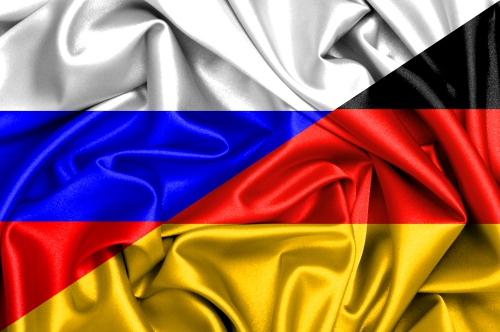
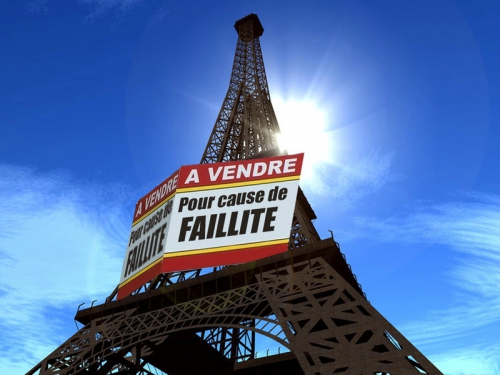

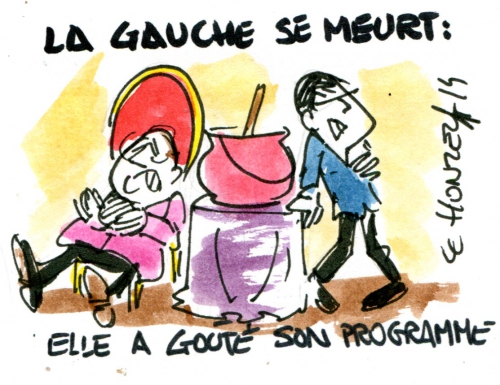
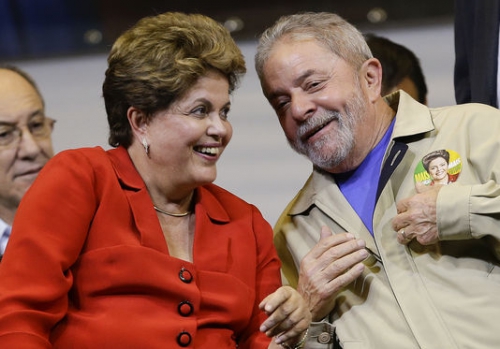
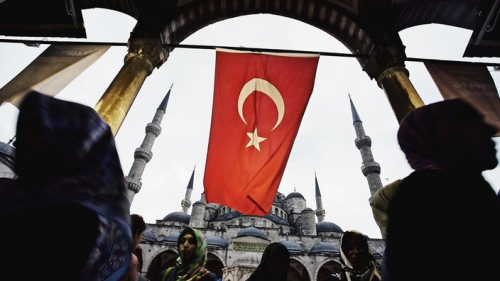
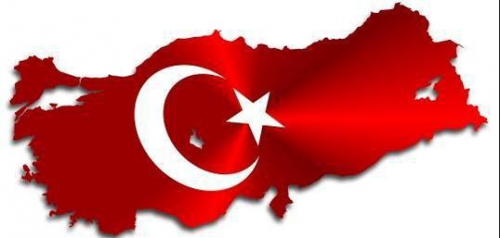
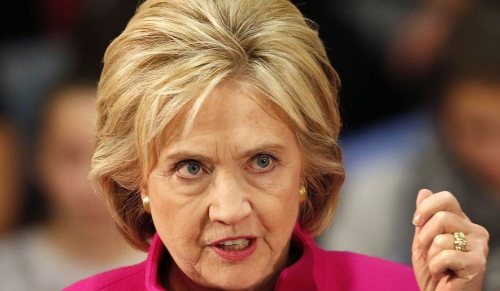

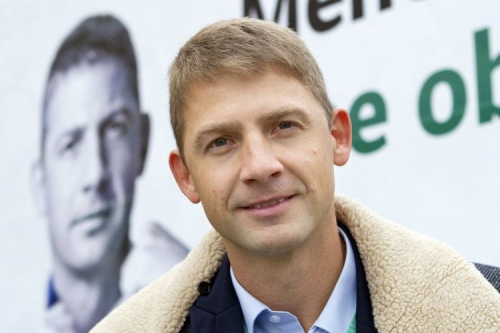
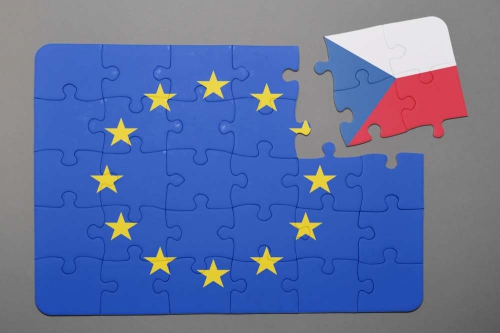
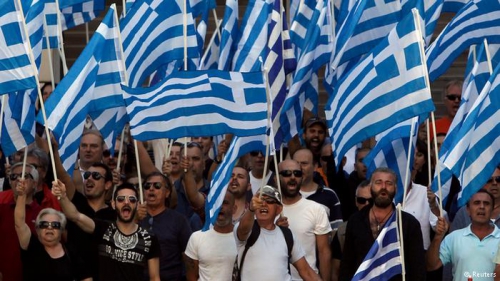
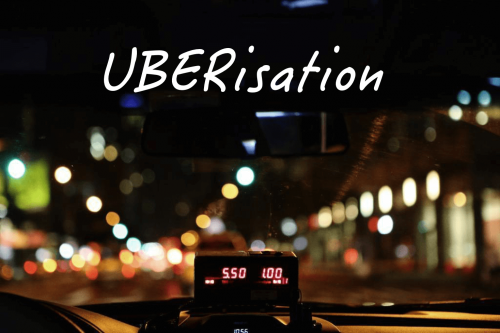

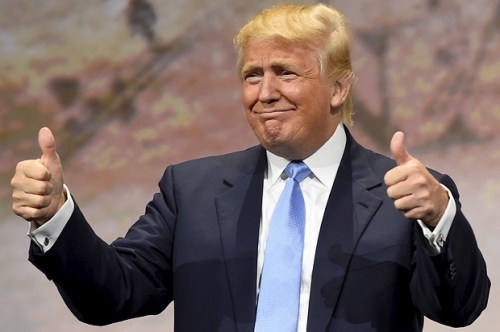
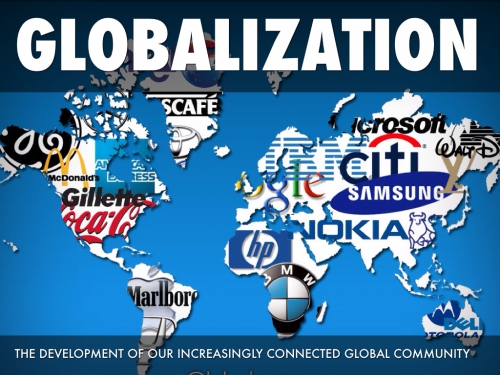

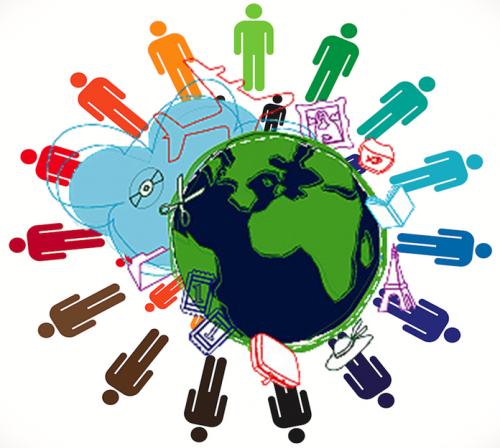
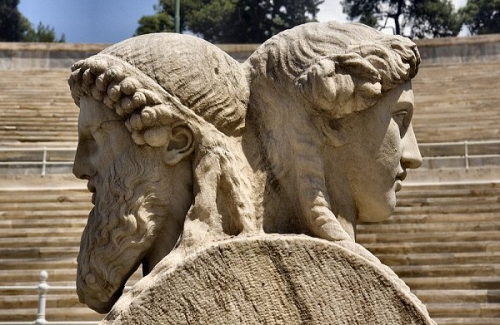
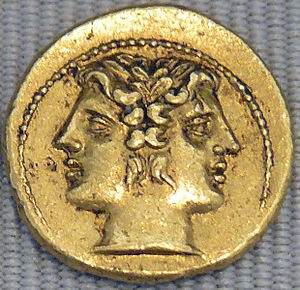 Ces considérations sont prégnantes dans les mouvements de droite, aussi bien classiques que populistes, même si ces derniers les assument beaucoup plus aisément, notamment en Grande-Bretagne avec UKIP, en Belgique avec le Parti Populaire, ou en Suède avec les Démocrates Suédois. Le fait de rompre un tel tabou et de rouvrir le débat sur la coexistence des civilisations facilite leur classement à l’extrême-droite. Pourtant, les problématiques issues de la coexistence ne sont pas liées aux pays de l’Europe blanche et chrétienne. Une enquête réalisée par Ipsos en 2011 révèle que ce phénomène touche aussi aux autres continents, il s’agit d’un phénomène inhérent à l’être humain, il est donc universel.
Ces considérations sont prégnantes dans les mouvements de droite, aussi bien classiques que populistes, même si ces derniers les assument beaucoup plus aisément, notamment en Grande-Bretagne avec UKIP, en Belgique avec le Parti Populaire, ou en Suède avec les Démocrates Suédois. Le fait de rompre un tel tabou et de rouvrir le débat sur la coexistence des civilisations facilite leur classement à l’extrême-droite. Pourtant, les problématiques issues de la coexistence ne sont pas liées aux pays de l’Europe blanche et chrétienne. Une enquête réalisée par Ipsos en 2011 révèle que ce phénomène touche aussi aux autres continents, il s’agit d’un phénomène inhérent à l’être humain, il est donc universel.